Bitcoin
Golf and Bitcoin: The Greatest Games
Published
5 months agoon
By
admin

“Golf is deceptively simple and endlessly complicated; it satisfies the soul and frustrates the intellect. It is at the same time rewarding and maddening – and it is without a doubt the greatest game mankind has ever invented.” – Arnold Palmer
This quote from one of golf’s greatest is reminiscent of the bitcoin journey in many ways. At first glance, these two inventions might seem entirely unrelated, but they share intriguing parallels. The principles of golf can offer valuable insights into bitcoin, and understanding bitcoin can shed light on the intricacies of golf.
In both pursuits, achieving a certain threshold of time and understanding is like gaining admission into an exclusive club. Until that point, it can be extremely frustrating and seemingly meaningless; and after, equally rewarding as it is maddening to be a part of. But whether it’s money or a game, both without a doubt are the greatest mankind has ever invented.
Most amateur golfers know how hard it is to play well consistently. It takes hard work, longevity, grit, and mental fortitude that can only be forged over years of dedication. For many, it is a lifelong journey. There is no substitute for hashing away on the driving range, ball after ball. The parallels to a personal bitcoin journey run deep. Success in golf and bitcoin is a product of a low time preference, proof of work, and minimizing mistakes.
A low time preference is essential
Golf is a hard journey. One that requires patience, discipline, and perseverance. Playing the game isn’t about the end destination, but the process along the way. That process has as much to teach us about ourselves as it can teach us the importance of looking out for our future selves.
Understanding the importance of bitcoin isn’t for the faint of heart. Learning what money is, what the problem with the money is today, and why bitcoin solves that problem takes time. But the fact that it’s hard is what makes it worth pursuing. After all, if it were easy, everyone would do it.
Worthwhile challenges come with obstacles, and this couldn’t be better represented in both bitcoin and golf. There are false peaks of understanding where good judgment lapses and hasty assumptions are made. There are snake oil salesmen offering shortcuts or “get rich quick” schemes along the way. And either way you spin it, ego is just another handicap.
Golf and bitcoin are incredibly humbling endeavors. Those who inevitably experience the pitfalls along the road learn that each is not about the end destination, and in fact, that they may never have one. But that journey can be incredibly rewarding in and of itself.
Once I understood bitcoin, the power I gained from using it as my primary form of savings trickled into other parts of my life. I suddenly became more interested in enhancing other parts of my life, like my health and my relationships with friends and family. I simply became happier, and generally, more optimistic toward the future. It’s a feeling that reminds me of a quote from Bobby Jones, one of the greatest golfers to ever play the game,
“The most important shot in golf is the next one.”
Golf is different from most other sports in that you can play it most of your life. Some sports are high-time preference in the sense that they are optimized for a short amount of time, typically a couple years, or even for a single game. Golfers know when they step onto the practice range or off the first tee that the goal isn’t to hit the longest drive or to shoot their best score. But instead, to get just a little better every time. The confidence gained from this approach is foundational to having the conviction necessary to not only survive, but thrive when the going gets tough…and it will get tough!
In Ben Hogan’s book, “Five Lessons,” a book I’d liken to “Mastering Bitcoin” but for the game of golf, he describes a shot that he hit on the 72 hole of a tournament in 1950 at the Merion Golf Club. The shot was a 5 iron from 200 yards away up a severe hill to a sloping green. The ball landed close enough to the pin to force a playoff and ultimately led him to winning the championship.
“I bring up this incident not for the pleasure of re-tasting the sweetness of a “big moment” but, rather, because I have discovered in many conversations that the view I take of this shot (and others like it) is markedly different from the view most spectators seem to have formed. They are inclined to glamorize the actual shot since it was hit in a pressureful situation. They tend to think of it as something unique in itself, something almost inspired, you might say, since the shot was just what the occasion called for. I don’t see it that way at all. I didn’t hit that shot then – that late afternoon at Merion. I’d been practicing that shot since I was twelve years old.”
Both golf and bitcoin reward individuals with a low time preference. Grasping and embracing this principle is essential for achieving better scores and greater enjoyment of the game. Faking a good golf swing is about as likely to happen as faking a bitcoin transaction, it simply cannot be done. This is why developing a strong golf game requires the same crucial element as sound money: proof of work.
There is no substitute for proof of work
The importance of proof of work in bitcoin, and in money generally, cannot be overstated. Money must be tied to the universal truth that nothing in this world is free. Success in golf is no different.
Becoming a professional golfer might be out of reach for most of us, but we can still adopt a low time preference approach to improving our skills. Whether you are aiming to go pro or just trying to break 90, consistent effort is essential. There’s no substitute for hitting hundreds or thousands of balls on the driving range, each swing aimed at perfecting your shot.
Developing a good golf game is like solving a puzzle. You must persist, swing by swing, making incremental adjustments until you find the solution—at least for that one swing or that one day. The challenge is that each new day brings different variables. You might be battling an injury, or the weather might create different playing conditions. These changes require slight tweaks to your game, and once again, you have to work through the puzzle.
Bitcoin mining is often described as solving a complex puzzle as well. Each block template is unique, and miners must tweak the nonce repeatedly until they discover the right input to hit the target. Doing so unlocks great rewards, but only if you can prove to the network you’ve expended the required work. This process links bitcoin’s ledger to real-world energy use, safeguarding its transaction history with an unforgeable costliness. The result of that work—a valid cryptographic hash below the difficulty target—can be easily verified by other players in the game. Achieving a low score for a round of golf is hard, but it’s easy for your playing partner to attest to your scorecard.
When you watch the average Saturday morning hacker, it’s clear that the level of work required to compete at the highest level hasn’t been met. The pros make it look easy, but achieving that level of skill requires significant investment over a long period. Winning a golf tournament involves a lot of hard work and a bit of luck, much like bitcoin mining.
Golf, like bitcoin, is a game that can only be mastered through proof of work. With a low time preference established and a massive amount of work invested, there’s another key concept to drive consistently lower golf scores: don’t make mistakes!
Don’t make mistakes
“Golf is a game of minimizing mistakes.” – Ben Hogan
Launch your drive somewhere in the fairway, hit your approach shot somewhere on the green, and get the ball in the hole in two putts…a successful par. Like shooting par on 18 holes, holding bitcoin is simple in concept but not easy in practice. Both require avoiding errors rather than achieving perfection. The key to success in bitcoin and golf is simple: don’t make mistakes.
Most golf fairways have a width between 25-65 yards. This means you do not have to hit a perfect shot to hit the fairway. In fact, you have a fairly wide range of shots that you can hit, and it would still put you in a sufficient spot to hit the green on the next shot. The same applies to a green. While it varies by course, the typical width of a putting green is around 25 yards. Again, this means you do not have to hit a perfect approach shot to hit the green. A wide range of shots will do. For both driving and approach shots, you do not need to hit the perfect shot. You simply need to not hit a bad shot.
Various elements can induce mistakes or mishaps on the golf course, such as wind, water, sand, rough, trees, and all sorts of other hazards. Success in any round of golf depends on a thoughtful approach. Course management and keeping your misses small, so that you can easily recover from them, are critical to achieving a low score. Perfection is not required, but fault tolerance is.
The same is true in your bitcoin journey. Hazards appear in the form of market volatility, adoption waves, and phishing attacks. Bitcoin “yield” products will tempt you to “overswing your driver” for a little bit of extra distance, and the trading gurus make going for the well-protected flag seem easy.
But your only job when it comes to holding bitcoin is to prevent yourself from making mistakes that cause you to lose it.
The foundation of your bitcoin course management is holding your own private keys in a fault-tolerant way and putting a succession plan in place. Avoid trying to time the market, trade bitcoin’s volatility, or search for a few extra points of yield. These are all near-certain ways to shank the proverbial BTC ball into the woods. You simply need to hold your bitcoin securely and keep your private keys private.
Final Thoughts
The parallels between golf and bitcoin offer valuable lessons for those embarking on either journey. They are each long-term pursuits that must be approached with a low time preference. The proof of work concept is central to both, emphasizing that consistent effort and dedication are the only paths to success. Finally, the importance of minimizing mistakes cannot be overstated in either domain. As you navigate your bitcoin journey, adopt the mindset of a seasoned golfer, and make sure you always play from the fairway.
P.S. If you are a golfer who loves bitcoin, join us for the inaugural Bitcoin Golf Championship on July 24th in Nashville!
https://bitcoingolfchampionship.com/
This is a guest post by Rocky Wold, Joe Burnett, and Trey Sellers. Opinions expressed are entirely their own and do not necessarily reflect those of BTC Inc or Bitcoin Magazine.
Source link
You may like


Tron’s Justin Sun Offloads 50% ETH Holdings, Ethereum Price Crash Imminent?


Investors bet on this $0.0013 token destined to leave Cardano and Shiba Inu behind


End of Altcoin Season? Glassnode Co-Founders Warn Alts in Danger of Lagging Behind After Last Week’s Correction
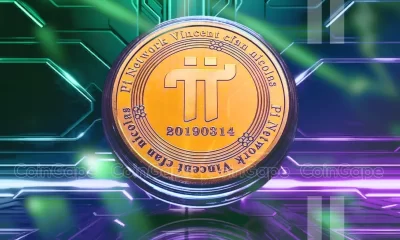

Can Pi Network Price Triple Before 2024 Ends?
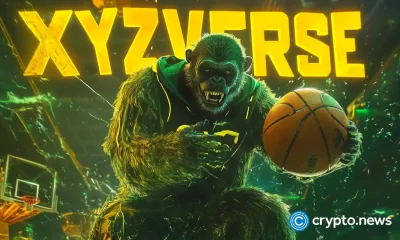

XRP’s $5, $10 goals are trending, but this altcoin with 7,400% potential takes the spotlight


CryptoQuant Hails Binance Reserve Amid High Leverage Trading
Altcoin Season
End of Altcoin Season? Glassnode Co-Founders Warn Alts in Danger of Lagging Behind After Last Week’s Correction
Published
2 hours agoon
December 23, 2024By
admin
The creators of the crypto analytics firm Glassnode are warning that altcoins could lose all bullish momentum following last week’s market correction.
Jan Happel and Yann Allemann, who go by the handle Negentropic on the social media platform X, tell their 63,400 followers that “altcoin season,” which they say began in late November, could come to an abrupt end after alts witnessed deep pullbacks over the last seven days.
According to the Glassnode co-founders, traders and investors will likely have a risk-off approach on altcoins unless Bitcoin recovers a key psychological price point.
“Is This the End of Altcoin Season?
Bitcoin dominance is surging after dipping below $100,000, while altcoins are losing critical supports. Dominance has risen and resumed its upward trend, signaling a stronger BTC environment.
If BTC stabilizes above $100,00, we might see a pump in altcoins now in accumulation zones. Until then, Bitcoin appears poised to lead, leaving altcoins lagging behind.”
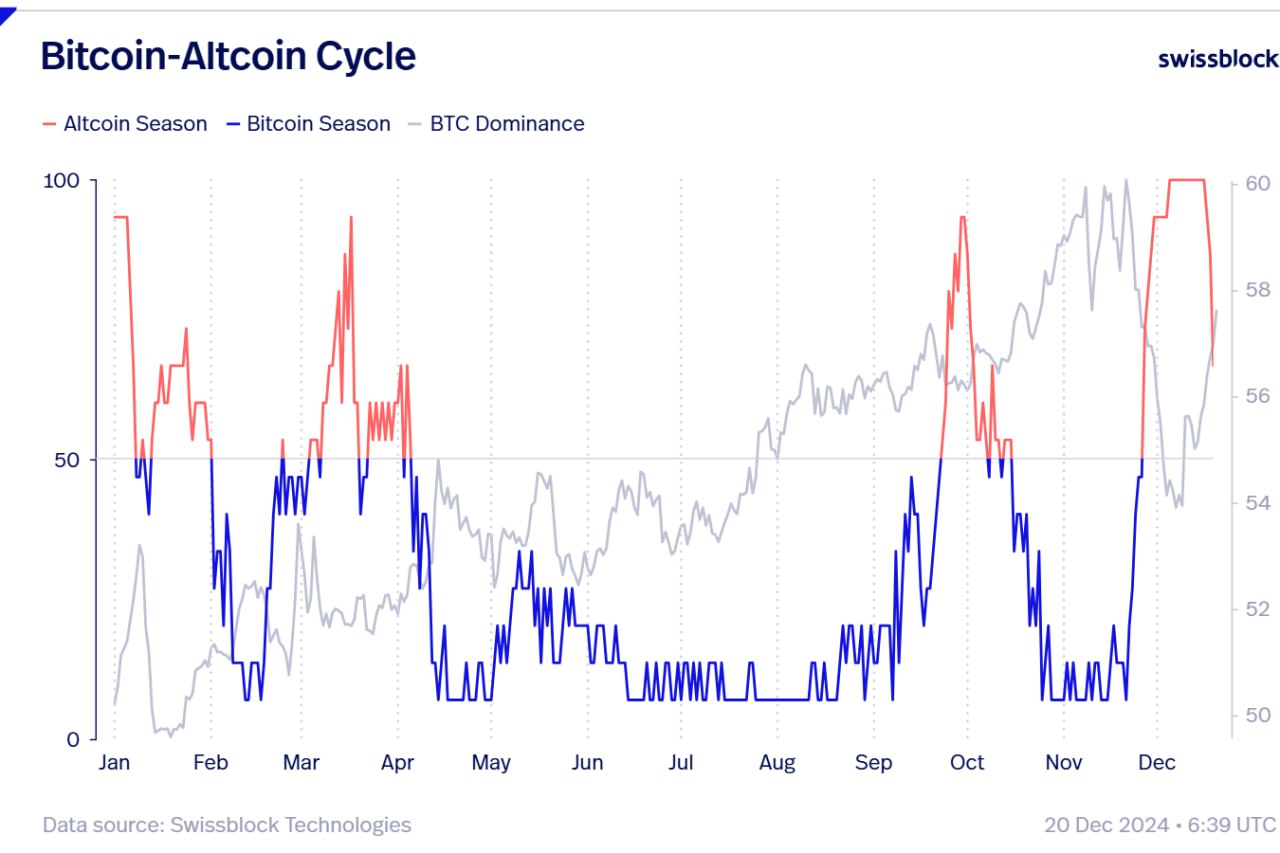
The Bitcoin Dominance (BTC.D) chart tracks how much of the total crypto market cap belongs to BTC. In the current state of the market, a surging BTC.D suggests that altcoins are losing value faster than Bitcoin.
At time of writing, BTC.D is hovering at 59%.
Looking at Bitcoin itself, the Glassnode executives say long-term Bitcoin holders are massively unloading their holdings as other investor cohorts pick up the slack.
“The Board Keeps Shifting.
As BTC continues flowing out of exchanges during this dip, long-term holders are exiting forcefully, while short-term holders step in without hesitation.
Whales quietly accumulate, miners remain neutral, and selling pressure has merely reshuffled the board.
New hands are absorbing the sales.”
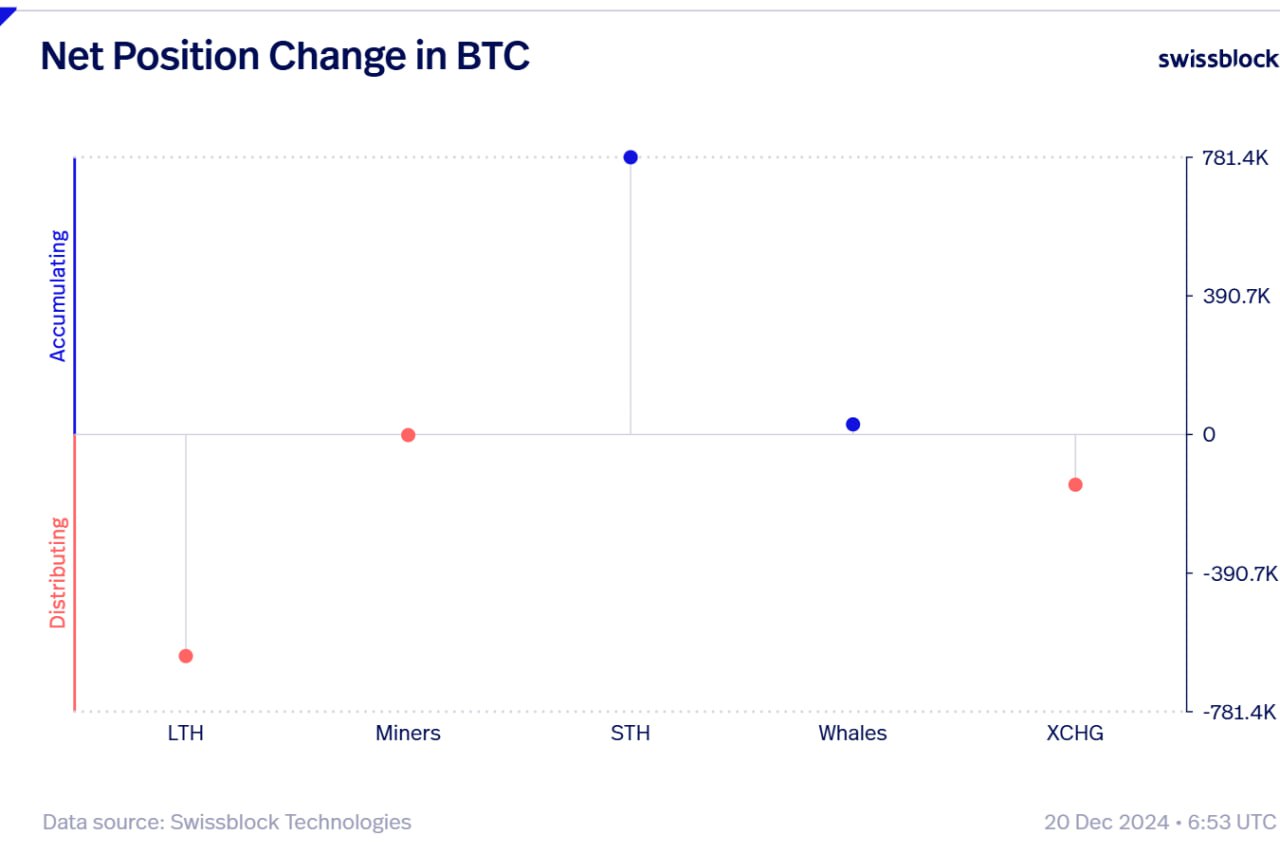
At time of writing, Bitcoin is worth $97,246.
Don’t Miss a Beat – Subscribe to get email alerts delivered directly to your inbox
Check Price Action
Follow us on X, Facebook and Telegram
Surf The Daily Hodl Mix
 

Disclaimer: Opinions expressed at The Daily Hodl are not investment advice. Investors should do their due diligence before making any high-risk investments in Bitcoin, cryptocurrency or digital assets. Please be advised that your transfers and trades are at your own risk, and any losses you may incur are your responsibility. The Daily Hodl does not recommend the buying or selling of any cryptocurrencies or digital assets, nor is The Daily Hodl an investment advisor. Please note that The Daily Hodl participates in affiliate marketing.
Generated Image: DALLE3
Source link
Altcoins
Bitwise CIO Matt Hougan Predicts Institutional Interest in Altcoins, Says 2025 the Year of Crypto Diversification
Published
18 hours agoon
December 22, 2024By
admin
Bitwise CIO Matt Hougan says a wave of institutional interest in altcoins is coming next year, largely due to potential regulatory clarity and more exchange-traded funds (ETFs).
In a new interview with Bloomberg, Hougan says that institutional money is in the early stages of broadening out to other crypto assets besides just Bitcoin (BTC).
Hougan forecasts that 2025 will be the year that institutional investors will begin to incorporate more diversification in their crypto-investing strategies the same way they do in other asset classes like equities or bonds.
“You’re already seeing it broaden out actually. A lot of people were worried about the Ethereum ETFs for instance, which launched this summer and had tepid inflows.
But over the last month or so, you’ve seen billions of dollars flow into those products.
Again, the things that have happened in crypto in the past keep happening. Historically, most people enter crypto through Bitcoin, and then they discover Ethereum, and then they think about Solana. There’s no reason to assume that the institutions that came into Bitcoin won’t move on to other assets in the future.
In fact, I think in 2025, you’re going to see an explosion of interest in index space strategies that give diversified exposure to crypto. Of course, [that is] something we’ve been doing at Bitwise since 2017 when we pioneered that concept. I think 2025 is when that becomes a mainstream way to allocate to this space, the same way it is to stocks and bonds and real estate and everything else.”
Don’t Miss a Beat – Subscribe to get email alerts delivered directly to your inbox
Check Price Action
Follow us on X, Facebook and Telegram
Surf The Daily Hodl Mix
 

Disclaimer: Opinions expressed at The Daily Hodl are not investment advice. Investors should do their due diligence before making any high-risk investments in Bitcoin, cryptocurrency or digital assets. Please be advised that your transfers and trades are at your own risk, and any losses you may incur are your responsibility. The Daily Hodl does not recommend the buying or selling of any cryptocurrencies or digital assets, nor is The Daily Hodl an investment advisor. Please note that The Daily Hodl participates in affiliate marketing.
Featured Image: Shutterstock/Julien Tromeur/Sensvector
Source link
Bitcoin
Microsoft says ‘no’ to Bitcoin, corporates say ‘bring it on’
Published
1 day agoon
December 22, 2024By
admin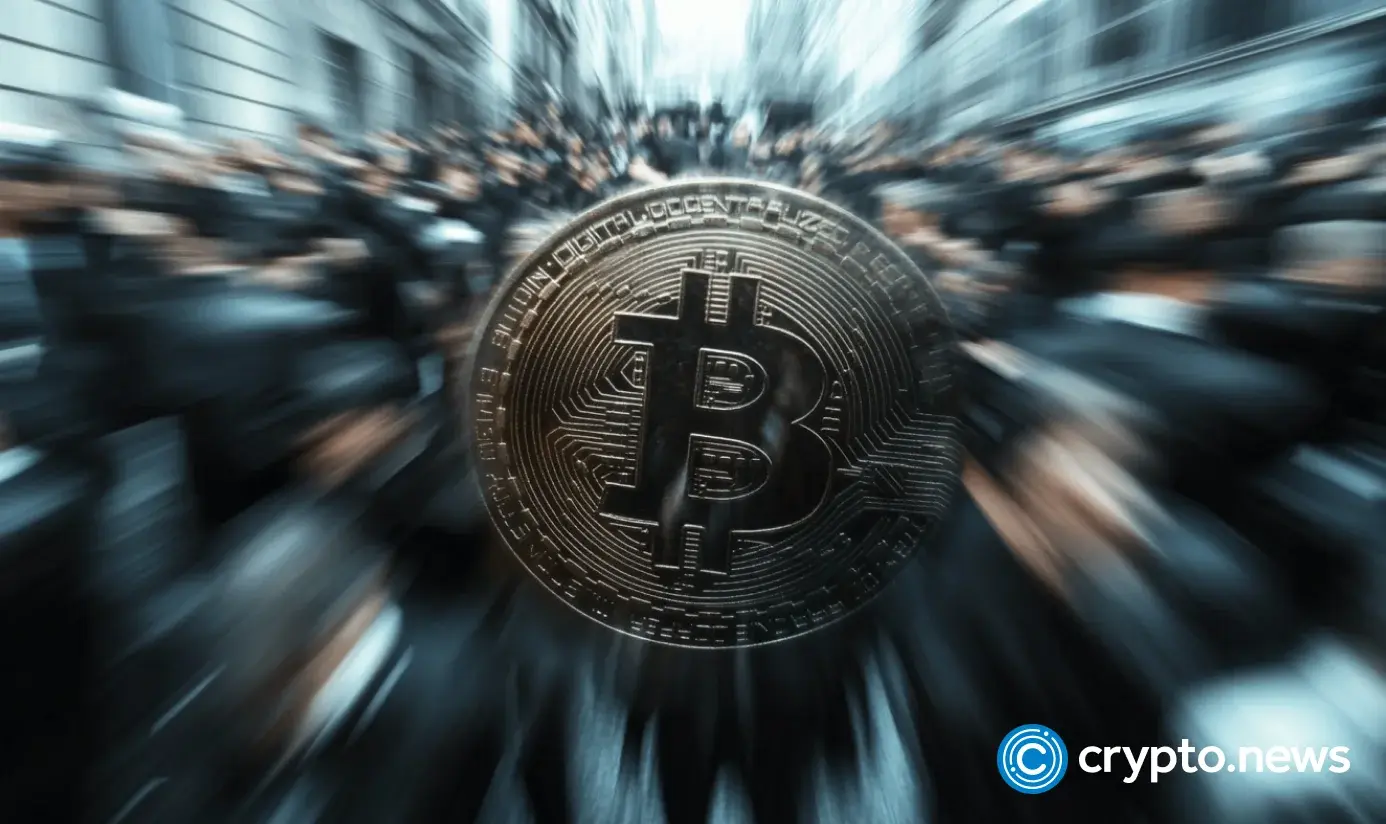
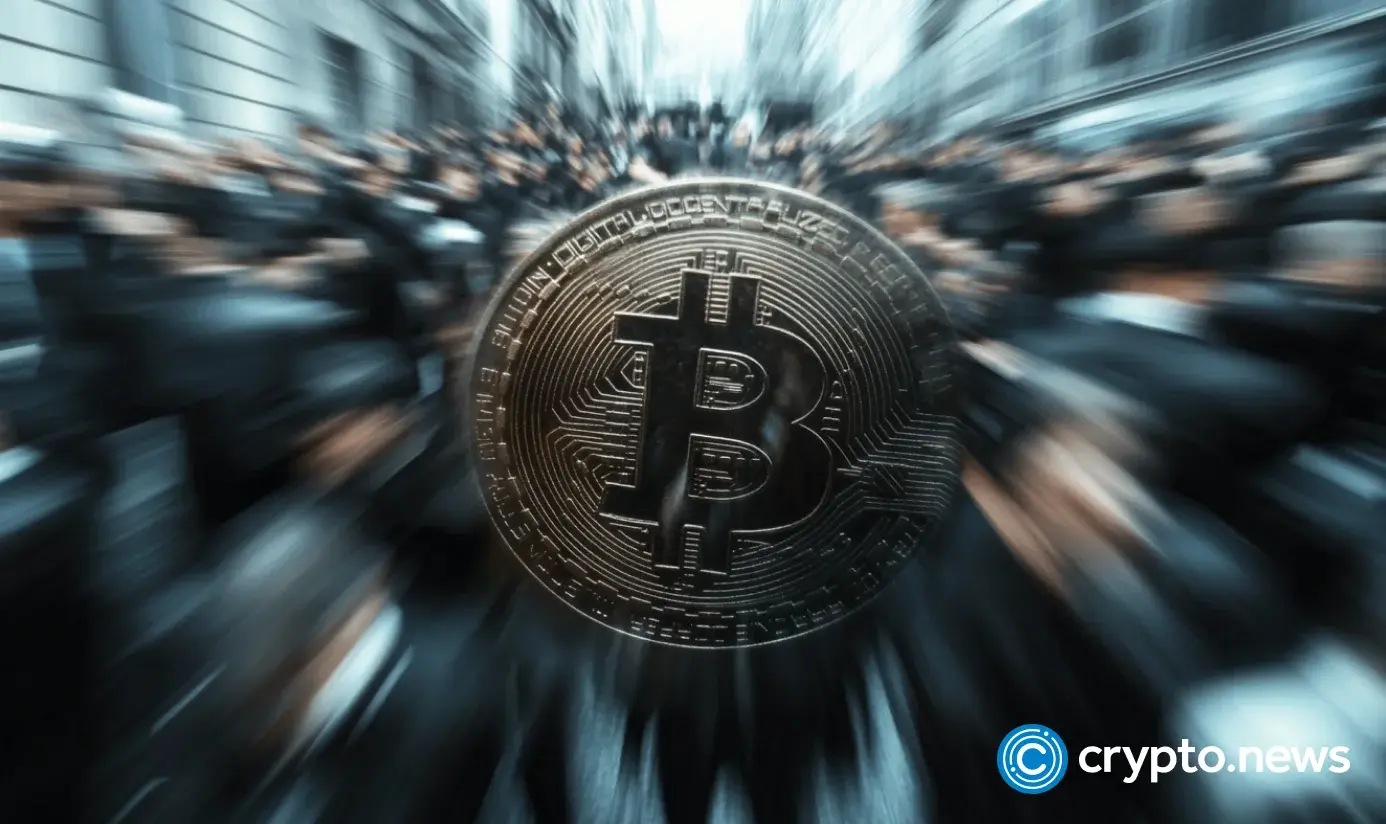
Microsoft shareholders nixed a Bitcoin treasury idea, but other big-name companies disagree with this strategy. Here’s why.
Bitcoin (BTC) is often likened to “digital gold,” with its fixed supply of 21 million coins making it a potential hedge against currency devaluation and inflation.
And nowadays, Bitcoin’s unique characteristics make it an attractive addition to corporate treasuries. It can balance exposure to traditional assets like cash, stocks, and bonds.
Bitcoin is also one of the most liquid assets globally, and its historical performance has shown significant long-term value appreciation — it reached an all-time high of over $108,000 on Dec. 17.
But there’s no shortage of risks.
A board might avoid adopting a Bitcoin treasury due to the coin’s extreme price volatility, which can lead to substantial losses during downturns. Also, regulatory uncertainties pose potential threats as governments refine crypto policies. Additionally, liquidity challenges during market slumps can amplify price drops when offloading assets.
So it’s no wonder that, on Dec. 10, Microsoft’s board channeled the long-standing crypto skepticism of its co-founder, Bill Gates, and recommended ditching the proposa for a Bitcoin trasury. Gates himself has famously dismissed crypto as “100% based on greater fool theory” — ouch.
Bitcoin evangelist and MicroStrategy Chairman Michael Saylor was busy trying to woo Microsoft when he touted Bitcoin’s own meteoric returns and bragged about MicroStrategy’s stock soaring after their BTC splurge. His pitch? Bitcoin could boost Microsoft’s market cap while acting as a financial guardian angel.
Microsoft’s response? No, thanks.
Meanwhile, at least 10 other companies are embracing the MicroStrategy playbook.
Genius Group
Genius Group, an AI-powered education group, announced in November that it had completed the purchase of 110 Bitcoin for $10 million, at an average price of $90,932 per Bitcoin. The purchase made good on a promise to employ what it called a “Bitcoin-first” strategy where it planed to commit 90% or more of its current and future reserves to be held in Bitcoin, with an initial target of $120 million in Bitcoin.
Earlier this month, the company bolstered its Bitcoin treasury by acquiring 194 Bitcoin worth $18 million at an average price of $92,728 per Bitcoin.
Genius Group CEO Roger Hamilton credited Saylor’s Bitcoin treasury plan for the inspiration, adding that “more companies will see the benefits of establishing a Bitcoin treasury, and will be equipped with the clear steps to follow.”
Worksport
Worksport, a U.S.-based provider of pickup truck solutions, is adding cyptocurency to its corporate treasury strategy.
The Nasdaq-listed company announced on Dec. 5 that it would be adding Bitcoin (BTC) and XRP (XRP) to its treasury assets. This follows a resolution by the company’s board of directors, which approved an initial purchase of $5 million worth of BTC and XRP.
Worksport is committing 10% of its excess operational cash to this corporate pivot, it said in the announcement.
“Our upcoming adoption of Bitcoin (BTC) and XRP (Ripple) reflects our commitment to staying ahead of market trends while prioritizing operational efficiency and shareholder value. As we expand our product offerings and global reach, cryptocurrency has the potential to be a strong strategic complement,” Steven Rossi, chief executive officer of Worksport, said.
Amazon
Amazon shareholders, led by the National Center for Public Policy Research, are urging the Seattle-based company’s board to assess the potential benefits of adding Bitcoin to the company’s financial strategy.
The proposal, submitted on Dec. 6, aims to explore whether Bitcoin could protect and enhance shareholder value, especially amid persistent inflation and declining yields from traditional assets.
The National Center emphasizes Bitcoin’s robust performance—131% growth in the past year and 1,246% over five years—as evidence of its potential as an inflation hedge and a growth asset. The initiative also highlights concerns about the diminishing purchasing power of Amazon’s $88 billion cash reserves due to average inflation of 4.95% over the past four years.
This move represents a broader trend of shareholder proposals influencing corporate policies, leveraging shareholder rights to advocate for financial strategies that address economic risks and enhance long-term value.
MicroStrategy
Perhaps the most vocal of all Bitcoin fans is MicroStrategy’s Saylor who, as of this past week, increased the company’s total holdings to 439,000.
As a result, Saylor has officially strengthening MicroStrategy’s position as the top corporate BTC holder, considering it a long-term store of value.
Saylor, during an appearance on the Dec. 18 episode of the Open Interest show on Bloomberg Television, even voiced his willingness to advise President-elect Donald Trump on crafting a digital assets policy for the U.S.
But Saylor continues to draw scrutiny: Analyst Jacob King has labeled MicroStrategy’s Bitcoin-focused business model a “giant scam,” claiming it is unsustainable and destined for collapse.
MicroStrategy’s business model is a giant scam and relies on a reflexive loop: it issues debt or equity to buy BTC, which drives BTC’s price higher. This increases MSTR’s market cap, boosts its index weight, and attracts more sheep investors. With a higher valuation, it issues… pic.twitter.com/Owyi7mCHaO
— Jacob King (@JacobKinge) December 17, 2024
Marathon Digital Holdings
As one of the largest Bitcoin mining companies, Marathon owns 44,394 BTC. Its business model revolves entirely around mining and holding Bitcoin as part of its assets.
Back in July, the company confirmed it will adopt “a full HODL approach” towards its Bitcoin treasury policy, retaining all that it mines within its operations, in addition to its open market purchases.
“Adopting a full HODL strategy reflects our confidence in the long-term value of bitcoin,” CEO Fred Thiel stated. “We believe bitcoin is the world’s best treasury reserve asset and support the idea of sovereign wealth funds holding it. We encourage governments and corporations to all hold bitcoin as a reserve asset.”
Tesla
Tesla initially bought $1.5 billion worth of Bitcoin in 2021 and currently holds 9,720 BTC. While the Elon Musk-led company remains a significant corporate holder.
BitcoinTreasuries data shows that Tesla is the fourth-largest holder of Bitcoin among U.S. public companies with crypto treasuries (MicroStrategy, MARA Holdings and Riot Platforms are believed to hold more).
In October, the electric vehicle company reportedly moved $765 million worth of Bitcoin to unidentified wallets.
Coinbase
The cryptocurrency exchange holds 9,480 BTC as part of its reserves, leveraging its position as a major player in the digital asset ecosystem.
The Brian Armstrong-led firm holds large amounts of Bitcoin as an exchange and converter. It’s also a trusted institution for custody services, and counts the Bitcoin ETF coterie of BlackRock, Grayscale, 21Shares, Invesco, Valkyrie, Wisdom Tree and Franklin Templeton among its clients.
Therefore, Coinbase has a Bitcoin treasury for itself and oversees others.
Hut 8 Mining Corp
On Thursday, crypto.news reported that Hut 8, a Bitcoin mining company, added 990 Bitcoin to its reserves.
The company spent roughly $100 million to increase its total holdings to 10,096 BTC. The reserve, now valued at over $1 billion, places Hut 8 among the largest corporate Bitcoin holders globally.
The company, under the guidance of CEO Asher Genoot, purchased the coins at an average price of $101,710, significantly higher than its cumulative acquisition cost of $24,484 per Bitcoin.
Block Inc.
The startup (formerly Square) holds 8,027 BTC as part of its strategy to integrate Bitcoin into mainstream finance.
The Jack Dorsey-founded company is so bullish on Bitcoin that, last month, it confirmed a company-wide pivot towards the cryptocurrency mining sector.
Block decided to dial down resources towards music streaming service TIDAL, and sunset TBD, a venture focusing on decentralizing the internet, to focus on expanding its presence in the Bitcoin mining sector.
Block acquired TIDAL in a 2021 acquisition for roughly $300 million. The platform has continued to struggle, with reports indicating workforce reductions and a $132.3 million impairment charge.
OneMedNet
OneMedNet Corp., as of Nov. 12, owns some 34 Bitcoins.
Off The Chain Capital, an investor in OneMedNet, was also inspired by Saylor, betting that Bitcoin isn’t just a hedge but a springboard for its healthcare data innovation.
Aaron Green, the company’s CEO, stated, “By continuing to invest a portion of our assets into Bitcoin, we aim to not only safeguard our financial stability but also fuel the ongoing development and innovation within our iRWD platform.”
Source link

Tron’s Justin Sun Offloads 50% ETH Holdings, Ethereum Price Crash Imminent?

Investors bet on this $0.0013 token destined to leave Cardano and Shiba Inu behind

End of Altcoin Season? Glassnode Co-Founders Warn Alts in Danger of Lagging Behind After Last Week’s Correction

Can Pi Network Price Triple Before 2024 Ends?

XRP’s $5, $10 goals are trending, but this altcoin with 7,400% potential takes the spotlight

CryptoQuant Hails Binance Reserve Amid High Leverage Trading

Trump Picks Bo Hines to Lead Presidential Crypto Council

The introduction of Hydra could see Cardano surpass Ethereum with 100,000 TPS

Top 4 Altcoins to Hold Before 2025 Alt Season

DeFi Protocol Usual’s Surge Catapults Hashnote’s Tokenized Treasury Over BlackRock’s BUIDL

DOGE & SHIB holders embrace Lightchain AI for its growth and unique sports-crypto vision

Will Shiba Inu Price Hold Critical Support Amid Market Volatility?

Chainlink price double bottoms as whales accumulate

Ethereum Accumulation Address Holdings Surge By 60% In Five Months – Details

Ripple Transfers 90M Coins, What’s Happening?
182267361726451435

Why Did Trump Change His Mind on Bitcoin?

Top Crypto News Headlines of The Week

New U.S. president must bring clarity to crypto regulation, analyst says

Will XRP Price Defend $0.5 Support If SEC Decides to Appeal?

Bitcoin Open-Source Development Takes The Stage In Nashville

Ethereum, Solana touch key levels as Bitcoin spikes

Bitcoin 20% Surge In 3 Weeks Teases Record-Breaking Potential

Ethereum Crash A Buying Opportunity? This Whale Thinks So

Shiba Inu Price Slips 4% as 3500% Burn Rate Surge Fails to Halt Correction

Washington financial watchdog warns of scam involving fake crypto ‘professors’

‘Hamster Kombat’ Airdrop Delayed as Pre-Market Trading for Telegram Game Expands

Citigroup Executive Steps Down To Explore Crypto
Mostbet Güvenilir Mi – Casino Bonus 2024

NoOnes Bitcoin Philosophy: Everyone Eats
Trending

 3 months ago
3 months ago182267361726451435

 Donald Trump5 months ago
Donald Trump5 months agoWhy Did Trump Change His Mind on Bitcoin?

 24/7 Cryptocurrency News4 months ago
24/7 Cryptocurrency News4 months agoTop Crypto News Headlines of The Week

 News4 months ago
News4 months agoNew U.S. president must bring clarity to crypto regulation, analyst says

 Price analysis4 months ago
Price analysis4 months agoWill XRP Price Defend $0.5 Support If SEC Decides to Appeal?

 Opinion5 months ago
Opinion5 months agoBitcoin Open-Source Development Takes The Stage In Nashville

 Bitcoin5 months ago
Bitcoin5 months agoEthereum, Solana touch key levels as Bitcoin spikes

 Bitcoin5 months ago
Bitcoin5 months agoBitcoin 20% Surge In 3 Weeks Teases Record-Breaking Potential


